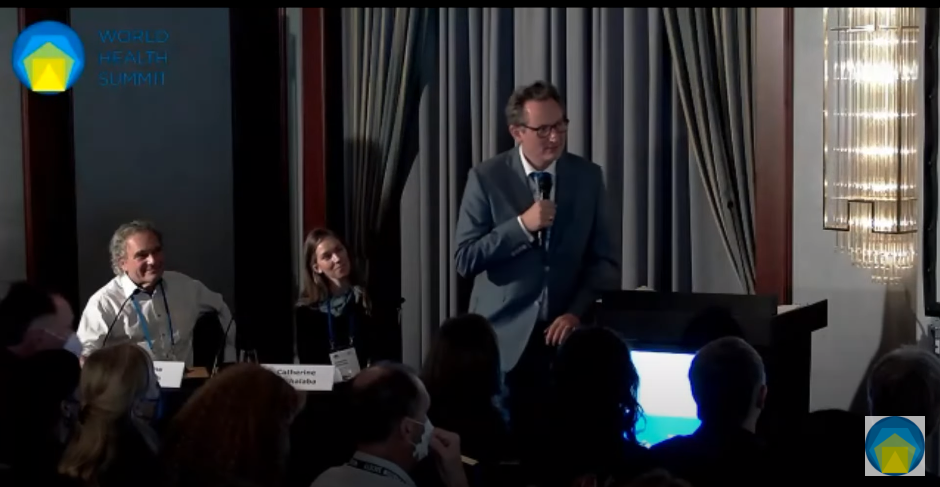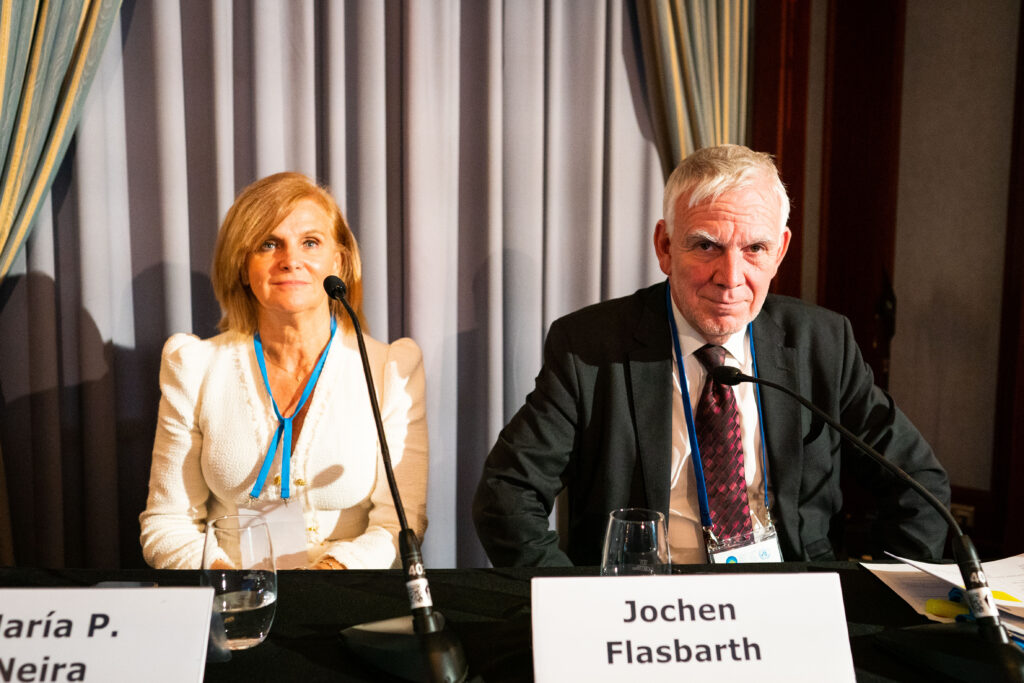The Alliance Secretariat hosted the side event “The Cost of Inaction – The Importance of Pandemic Prevention at the Source”, on Saturday 16th October at the World Health Summit 2022 in Berlin. The panelists represented various spheres within a One Health approach, emphasizing on a holistic perspective to bolster pandemic prevention at the source to reduce costs and provide co-benefits to climate and biodiversity.
You may click on the following link to watch the recorded session on YouTube:
WS 06 – The Cost of Inaction – The Importance of Pandemic Prevention at the Source – YouTube

About the panelists:
Prof. Dr. Andrew Dobson
Princeton University | Department of Ecology & Evolutionary Biology | Professor | United States of America
Jochen Flasbarth
Federal Ministry for Economic Cooperation and Development (BMZ) | State Secretary | Germany
Dr. Catherine Machalaba
EcoHealth Alliance | Senior Policy Advisor and Senior Scientist | United States of America
Dr. María Neira
World Health Organization (WHO) | Department of Environment, Climate Change and Health | Director
Dr. Eckart von Hirschhausen
Physician, Science Journalist, Founder of Healthy Planet – Healthy People Foundation and World Health Summit Ambassador | Germany

About the event:
Scientists calculate the cost of preventing further pandemics – via forest protection and improved wildlife trade regulation – over the next decade would amount to just 2% of the estimated financial damage caused by COVID-19. Such prevention strategies would also come with considerable co-benefits for climate and biodiversity. Research shows the proportion of pathogens crossing from one stage to the next, from pre-emergence to pandemic stage decreases as the costs for stopping those increases. In this inverse correlation: the earlier we prevent, the more cost-efficient it is.
Yet attention is currently focused on later-stage prevention, preparedness and response. According to WHO’s Cristina Romanelli, only 3% of current efforts to stop future pandemics goes to primary prevention (pre-spillover), while the remaining 97% is invested in secondary prevention and preparedness measures.
In the wake of immediate reactions to COVID-19 – most of which were taken under immense pressure to respond to and manage an ongoing crisis – many key actors, are now contemplating how to avoid and handle possible future pandemics more intelligently, efficiently and effectively. Considering this challenge, we ask: How can lessons learned from COVID-19 and primary prevention take a more prominent role in global responses to reduce the risk of future pandemics? What would such a policy path look like? And how might it incorporate regulations in line with WHO’s Manifesto (“Prescriptions for a healthy and green recovery from COVID-19”) that recognize the incredible opportunity for investments contributing to solving the triple, intersecting crises of health, climate and biodiversity?